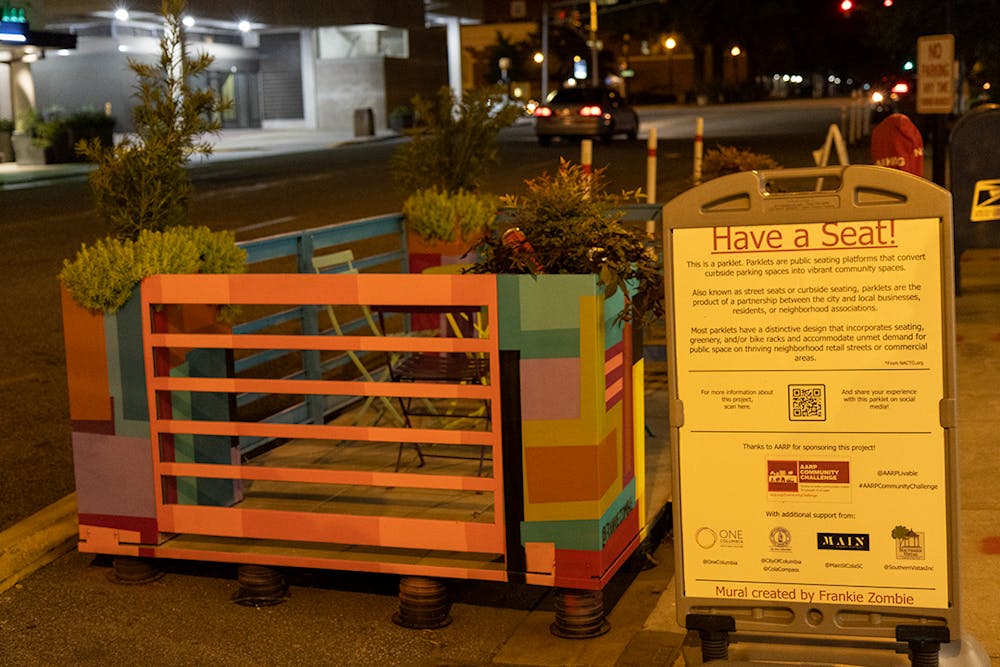Columbia celebrated its sixth annual PARK(ing) Day on Sept. 17, an event advocating for the need for more communal spaces in the city.
These communal spaces materialize through the installment of converted meter parking spaces, called parklets. In these spaces, people can share ideas, art, music, poetry and more.
The PARK(ing) Day event featured many temporary parklets which were only up for the day. However, the first permanent installation of a parklet took place in May 2021 and was designed by local artist Frankie Zombie.
One Columbia covered the cost of the parking spaces and aided in the development of the event.
“We often lose sight of the fact that parking space is public space owned by everyone, but yet any given time is used by only one person at a time," Lee Snelgrove, executive director for One Columbia, said. "By showcasing that was public space, and it could be more communal, it could benefit more people, you can make the city more human instead of being just devoted to cars."
The creations also worked to showcase the talent of local artists. This year, artist Cait Maloney designed a parklet, based around a board game, which focused on the public murals in Columbia.
These works of art and celebration worked to better allow the people of Columbia to catalyze the conversation for the need for more public areas in the city through this newfound medium and space.
Snelgrove said, because of PARK(ing) Day, he believes people are now more knowledgeable and comfortable about the city's changes.
“Parklets offer that opportunity in the sense that artists can showcase what they're doing or perform for people or engage with the passers-by like street performance, Snelgrove said.
Parklets are versatile in that they add a lot in different ways, such as a performance space, a gallery space, but also art itself, Snelgrove said.
Lucinda Statler, planning administrator for the City of Columbia, defined Columbia as being a car-centric city and that these sort of small projects help us make more people aware of our urban spaces.
"The magic of public spaces is that people come together, and people share their stories,” Statler said.
Leigh DeForth, the Comprehensive Planner in the Planning and Services Department for the City of Columbia, experienced the lack of public space firsthand. DeForth said she that felt Columbia didn't really have places to sit and talk as people tend not to stay in one spot.
"For example, I could walk through the Statehouse grounds, but you don't see as many people just standing and chatting,” DeForth said.
According to DeForth, another big reason for this push for more communal spaces is that Columbia can at times feel very "private" and “pay to play,” meaning in some places to be able to sit down had a cost involved, either in the form of food, coffee or another cost.
The major difference is that “PARK(ing) Day is about creating those public spaces. We don't serve food, we don't. We don't sell things. It's really about, is it an art installation or are they playing a game?” DeForth said.
By making the public aware of the space that could potentially be brought to fruition, Snelgrove observed that “the conversation around parking in Colombia is starting to change. People are a little more interested in pedestrian areas and places for bicycles.”

